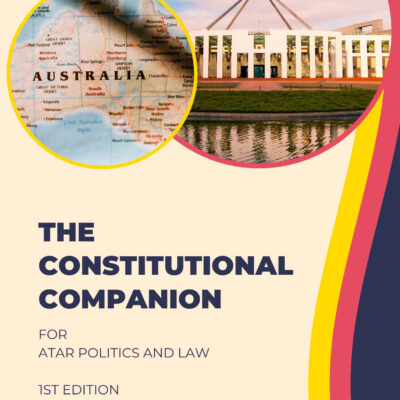Robodebt Issue: Roadmap of an Unlawful Scheme
Australia’s infamous “Robodebt” saga began in May 2015 when the Department of Human Services (DHS) received funding from the Abbott Government for a scheme to recover alleged welfare debts. The scheme was to crack down on welfare fraud and non-compliance, aiming to save up to $1.5 billion over four years.
In July 2016, the DHS launched the Online Compliance Intervention (OCI) System. The OCI was an automated process – later nicknamed “Robodebt” – that aimed to raise and recover welfare debts. It used algorithms to compare taxpayer income details on the Australian Taxation Office (ATO) database with Centrelink’s welfare recipients’ payment details. Data matching was used to identify welfare clients with undeclared or under-declared income and automatically calculate Centrelink overpayment debts. Critically, Robodebt used averaged yearly income data from the ATO to calculate Centrelink clients’ debts. Debt notices demanding repayment would be sent automatically.
Ultimately, what appeared to be an efficient system turned into a nightmare for vulnerable Australians. It led to demands for executive accountability reform. Doubts were cast on the capability of the public service. Robodebt also had dire consequences for the Morrison Government after a court ruling deemed the scheme unlawful. It’s likely that the scheme played a role in the electorate’s decision to hold the parliamentary Liberal Party accountable by rejecting many of its candidates at the May 2022 general election.
Early warnings
In December 2016, Human Services Minister Alan Tudge unveiled the so-called “Welfare Debt Squad.” With a mission to reclaim an estimated $4 billion allegedly paid incorrectly to welfare recipients, the scheme drew media attention for its vulnerability to errors due to a lack of human oversight.
Critical decisions from the Administrative Appeals Tribunal (AAT) emerged from March to September 2017. AAT member Terry Carney made five decisions condemning Robodebt, ruling that Centrelink could not enforce income averaging based on an entire financial year because the law required accurate fortnightly income data. However, the government ignored these warnings, and the Morrison Government later dismissed Carney from the AAT in September 2017.
The Commonwealth Ombudsman – an executive accountability agency – published a report on Robodebt in April 2017, raising concerns about the scheme’s lack of transparency and poor administration. Complaints flooded in from individuals burdened with debts under the flawed system.
By June 2017, the Senate Standing Committee on Community Affairs – one of eight Senate Estimates Committees – had launched an inquiry into Robodebt. Its report, titled “Accountability and Justice: Why we need a Royal Commission into Robodebt,” demanded a royal commission to investigate the scandal. The committee accused the government and the public service of deliberately withholding crucial information. Greens senator Janet Rice chaired the committee. The report included 21 recommendations to fix the deeply flawed system.
In November 2019, responding to pressure from the AAT, Ombudsman, and the Senate, DHS finally changed the debt calculation method. They ceased using averaged ATO income data for raising debts and required more comprehensive information for more accurate calculations.
Court decisions
Meanwhile, the Federal Court ruled in Amato v the Commonwealth that a Robodebt raised against a Victorian woman, Deanne Amato, was unlawful. The entire scheme had to be abandoned following the Amato ruling.
A decisive point came in June 2021 with the Federal Court class action Prygodicz v Commonwealth of Australia (No 2). Federal Court Judge Bernard Murphy delivered a scathing verdict, finding that the government had “unlawfully asserted” at least $1.763 billion in debts against approximately 433,000 Australians between July 2015 and November 2019. The court ordered the government to pay $1.8 billion settlement to people wrongly issued Centrelink debts, branding the Robodebt scheme as a “massive failure of public administration.”
Fallout
The Morrison Government was plagued by accountability scandals including its responses to natural disasters and allegations of pork-barrelling. Robodebt contributed to the perception of a government unable to govern with empathy and competence. The electorate roundly rejected Liberal Party candidates in formerly safe seats, electing six Teal independents in place of moderate Liberals. High-profile parliamentary casualties included Morrison Government Treasurer Josh Frydenberg.
On August 18, 2022, the Albanese Government established the Royal Commission into the Robodebt Scheme. Victims and government officials were summoned to provide evidence, including former DHS secretary Kathryn Campbell, former ministers Stuart Robert, Alan Tudge, Christian Porter, and even former Prime Minister Scott Morrison. Commissioner Catherine Holmes grilled senior officials from the public service for providing inadequate advice to ministers. And, ministers were questioned about why advice from the AAT and the Senate inquiry was ignored.
On July 7, 2023, the Royal Commission presented its report. The report shed light on the flaws and impacts of the Robodebt Scheme and offered 57 recommendations for future improvements, including reforms to the AAT, the public service, and ministerial responsibility. A sealed section of the report contained the names of current and former executive officials who could face civil or criminal prosecution.
Royal Commissioner Catherine Holmes observed “it is remarkable how little interest there seems to have been in ensuring the scheme’s legality, how rushed its implementation was, how little thought was given to how it would affect welfare recipients and the lengths to which public servants were prepared to go to oblige ministers on a quest for savings”. She added what was “truly dismaying was the revelation of dishonesty and collusion to prevent the scheme’s lack of legal foundation coming to light.” She found that former Prime Minister Scott Morrison allowed the “cabinet to be misled” and failed to uphold ministerial responsibility.
Signaling a stance on executive accountability for the unlawful scheme, the Albanese government suspended former DHS secretary Kathryn Campbell from the Australian Public Service without pay in July 2023.
The Robodebt Issue had ended, but its repercussions could reverberate for years as the public service and perhaps even former ministers face legal consequences. Reforms to increase the independence and capacity of the public service are likely. Other changes to executive decision-making include reducing the ability of ministers to shape the AAT’s membership by reforming its appointment process.
A system designed to ensure compliance turned into a nightmare of injustice, sparking widespread calls for reform to executive accountability and a commitment to protect the rights of welfare recipients.


